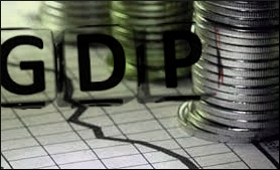|
|
|

|
'Fiscal support for growth in 2020 decade likely to be lower'
|
|

|
|
| Top Stories |
 |
|
|
|
SME Times News Bureau | 23 Jan, 2021
The fiscal support toward economic growth in the 2020 decade is expected
to be lower than in the previous corresponding period, Motilal Oswal
Financial Services said in a report.
According to the report, the likely lower support will be caused due to Centre's efforts for fiscal consolidation.
Notably,
the report pointed out that government has shown 'remarkable'
resistance to any major stimulus, which provides further confidence that
Centre's finances could improve consistently over the next decade.
"While
the fiscal deficit would remain above 3 per cent of GDP for the next
few years, the path to fiscal consolidation would be watched closely,"
the report said.
"The faster the fiscal consolidation, the lower
would be the fiscal support toward economic growth and vice-versa. It
could take many years for the general government to bring its
debt-to-GDP ratio (at 86 per cent of GDP in 2QFY21) back down to
pre-COVID levels (of 68 per cent)."
As per the report, the
growth in the 2000s decade was led by investments, while consumption was
the key driver in the 2010s decade.
"The 2020s decade could be
seen as the 'Healing Decade,' wherein all efforts are toward just one
objective - to regain lost economic strength."
"If, however,
this healing does not happen, it is very likely the economy would
continue to crawl sideways - with some years of decent growth and some
years of weak growth - leading to subdued average growth."
Besides,
the report cited that Covid impacted 2020 led to extreme behaviors,
pushing financial savings sharply higher, this would start reversing
from 2021 as things begin to normalise.
"Whether Indian
households would keep their financial positions healthy is an important
prerequisite for better growth performance over the long term."
"As
households and the government remain cautious on spending and repair
their balance sheets, a sharp and sudden surge in non-government
investments is unlikely. All of these factors imply that while economic
revival may be limited over the next few years."
Accordingly, the
improved balance sheets of economic participants - along with sustained
improvements in some key areas such as revival in real estate and
manufacturing would set the stage to move from low to high-single-digit
growth before the end of the 2020s decade.
|
|
|
| |
|
|
|
|
|
|
|
|
|
|
|
|
|
|
| |
| Customs Exchange Rates |
| Currency |
Import |
Export |
US Dollar
|
₹91.35
|
89.65 |
UK Pound
|
₹125.3
|
₹121.3 |
Euro
|
₹108.5
|
₹104.85 |
| Japanese
Yen |
₹58.65 |
₹56.8 |
| As on 19 Feb, 2026 |
|
|
| Daily Poll |
 |
 |
| What is your primary "Make or Break" expectation from the Finance Minister this year? |
|
|
|
|
|
| Commented Stories |
 |
|
|
|
|
|
| |
|